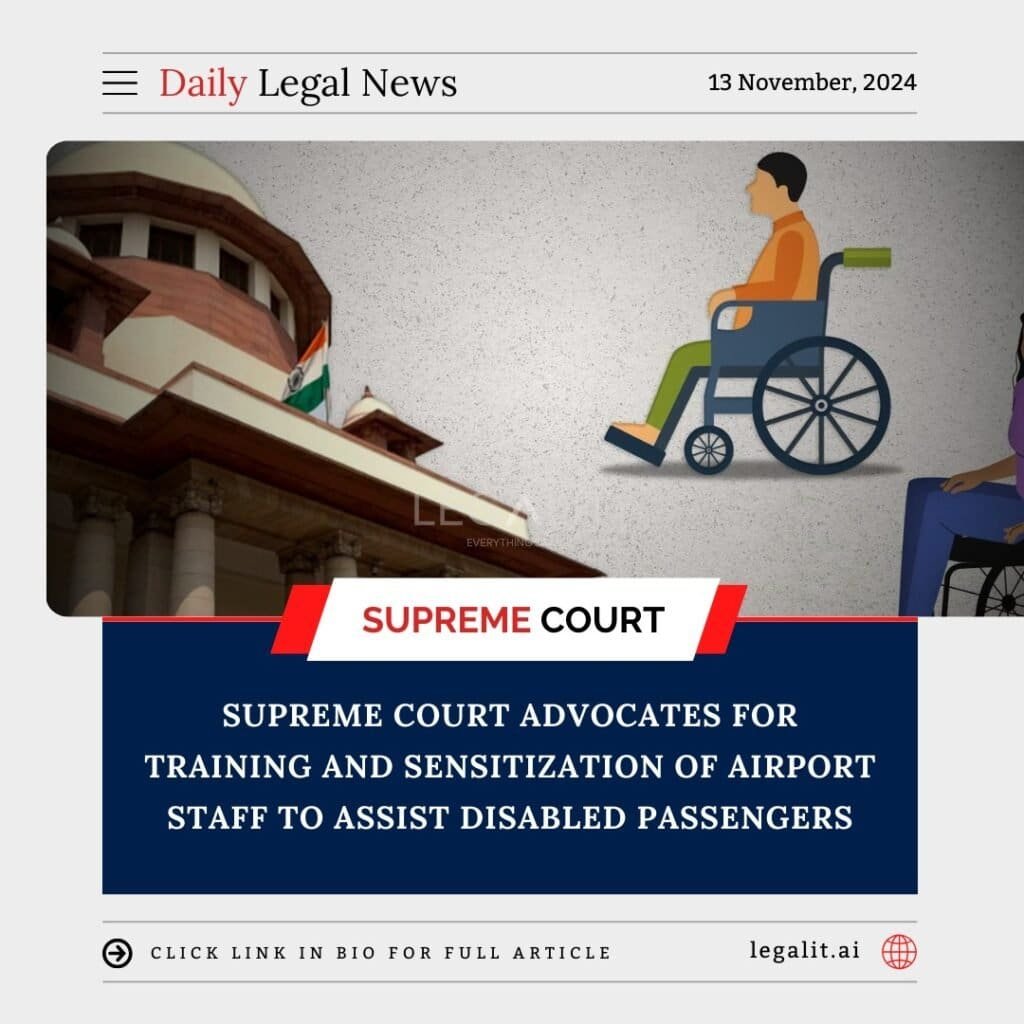
The Supreme Court of India has called for enhanced training and sensitization of airport staff to better assist disabled passengers, emphasizing the need for inclusive and accessible services in air travel. This directive highlights the judiciary’s commitment to ensuring dignity and support for passengers with disabilities.
Background:
The plea before the Supreme Court raised concerns over the lack of adequate assistance for disabled passengers at airports, pointing out that untrained and insensitive handling by staff often results in discomfort and distress. Recognizing the challenges faced by differently-abled individuals while navigating airports, the Supreme Court’s intervention seeks to address these issues through improved staff training and structured protocols.
Court’s Rationale:
The Supreme Court stressed the importance of ensuring that all airport staff, especially those in direct contact with passengers, are well-trained in assisting individuals with disabilities. The bench highlighted that respect, dignity, and adequate assistance are fundamental rights of disabled passengers, and sensitization of staff is essential to fulfill these rights. The Court underscored the need for a proactive approach to make airports a more welcoming and accessible environment.
Existing Measures:
India’s Rights of Persons with Disabilities Act mandates accessibility and assistance in public spaces, including airports. Although some guidelines exist, the Court has indicated that more targeted training programs, regular monitoring, and stricter adherence to these rules are necessary for meaningful implementation.
Conclusion:
The Supreme Court’s call for enhanced training and sensitization of airport staff reflects a proactive approach towards inclusivity in air travel. This directive aims to improve the travel experience of disabled passengers, setting a precedent for airports to prioritize dignity, comfort, and accessibility for all passengers.